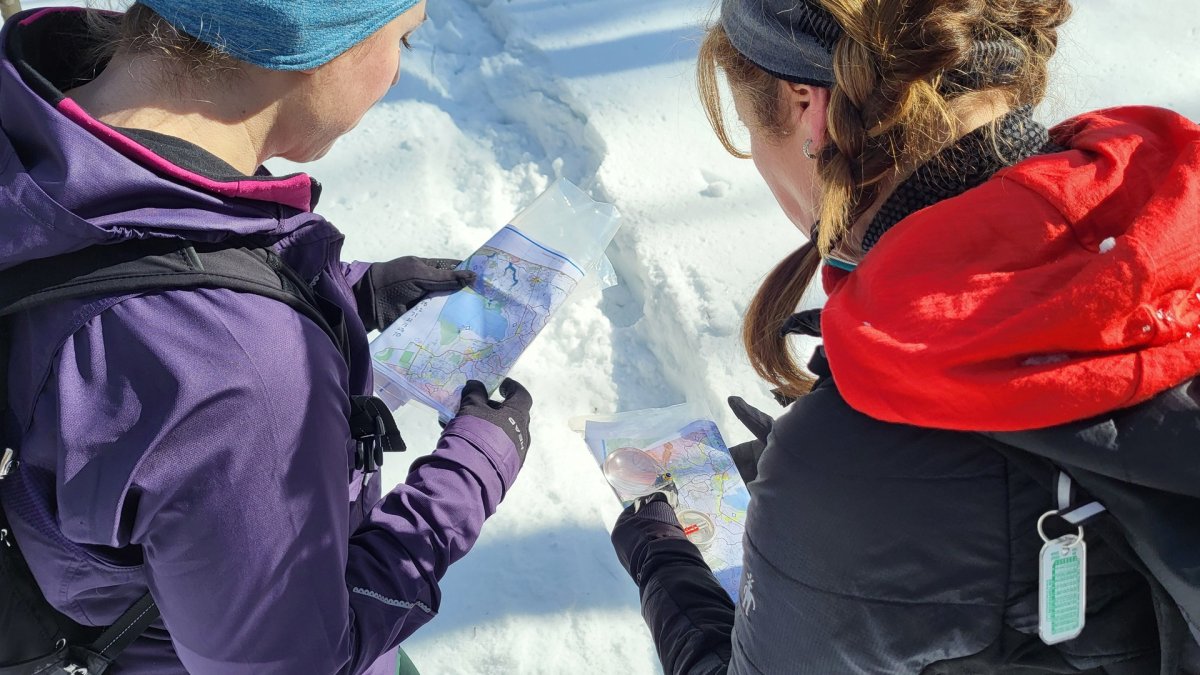A sport that combines exercise with map and compass navigation has not only physical health benefits but appears to also help improve brain function, potentially diminishing cognitive decline.

Research from McMaster University suggests putting away GPS technology and taking on the spatial navigation challenge “orienteering” helps stimulate the part of the brain responsible for memory, navigation and mental mapping.
Emma Waddingham, a McMaster graduate student and lead author of a study published in the journal Plos One, says it’s a similar concept to physical exercise benefitting muscles except working the brain’s spatial abilities to fight off cognitive decline.
“That’s where orienteering comes in. It’s that combination of exercise, which is good for our brain health, and navigation, which is not used in modern society,” Waddington told 900 CHML’s Good Morning Hamilton.
Developed by a military academy during the late 19th century in Sweden, “orienteering” is essentially a group of sports using a map and compass at speed to navigate from point to point through unfamiliar terrain.
Waddington, who’s been orienteering since the late 2000s and a part of Canada’s national team since 2015, says the study tracked some 150 fit adults between the ages of 18 to 87, all varying in experience with orienteering from none to established.
“We gathered their responses to questionnaires, and found that regardless of their age, sex or physical activity levels, those with expert skill level reported better perceptions of their spatial memory,” Waddington revealed.
She says the better navigational techniques come from stimulating the hippocampus, the part of the brain responsible for memory, navigation and mental mapping.
Those participating in orienteering generally reported better spatial navigation and memory.
There’s also some suggestion that orienteering may improve cognitive function in novices who grew up using GPS instead of the physical maps that were used by their older counterparts.
- Bird flu risk to humans an ‘enormous concern,’ WHO says. Here’s what to know
- ‘She gets to be 10’: Ontario child’s heart donated to girl the same age
- Shoppers faces proposed class action over claims company is ‘abusive’ to pharmacists
- Most Canadian youth visit dentists, but lack of insurance a barrier
Waddington said that testing is the next step in the research, giving subjects who’ve never done orienteering before a one-time shot and studying the effects.
“We’re testing that in our lab right now,” Waddington said.
“It would be really interesting to see what older adults tend to do spatially in navigation, and we also hope to look at that in our lab in the future.”
Ultimately, Waddington said the study is not suggesting residents should throw out their GPS or stop using mapping apps but is instead emphasizing that one should “train your brain” by adding a simple cognitive challenge to daily life.
“So changing up a walking route you do all the time, and turning that off when you know where you’re going or even exploring a new area can help the brain a little bit.”








Comments